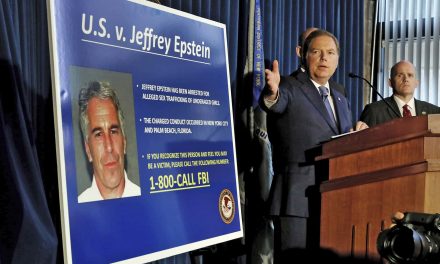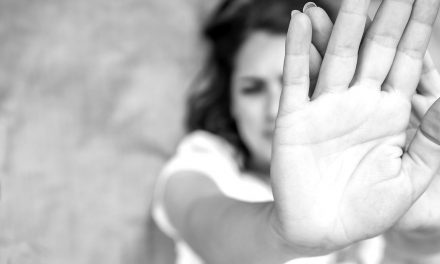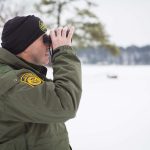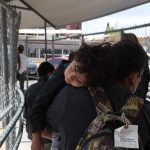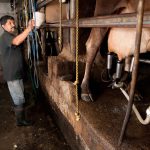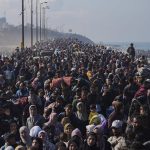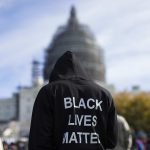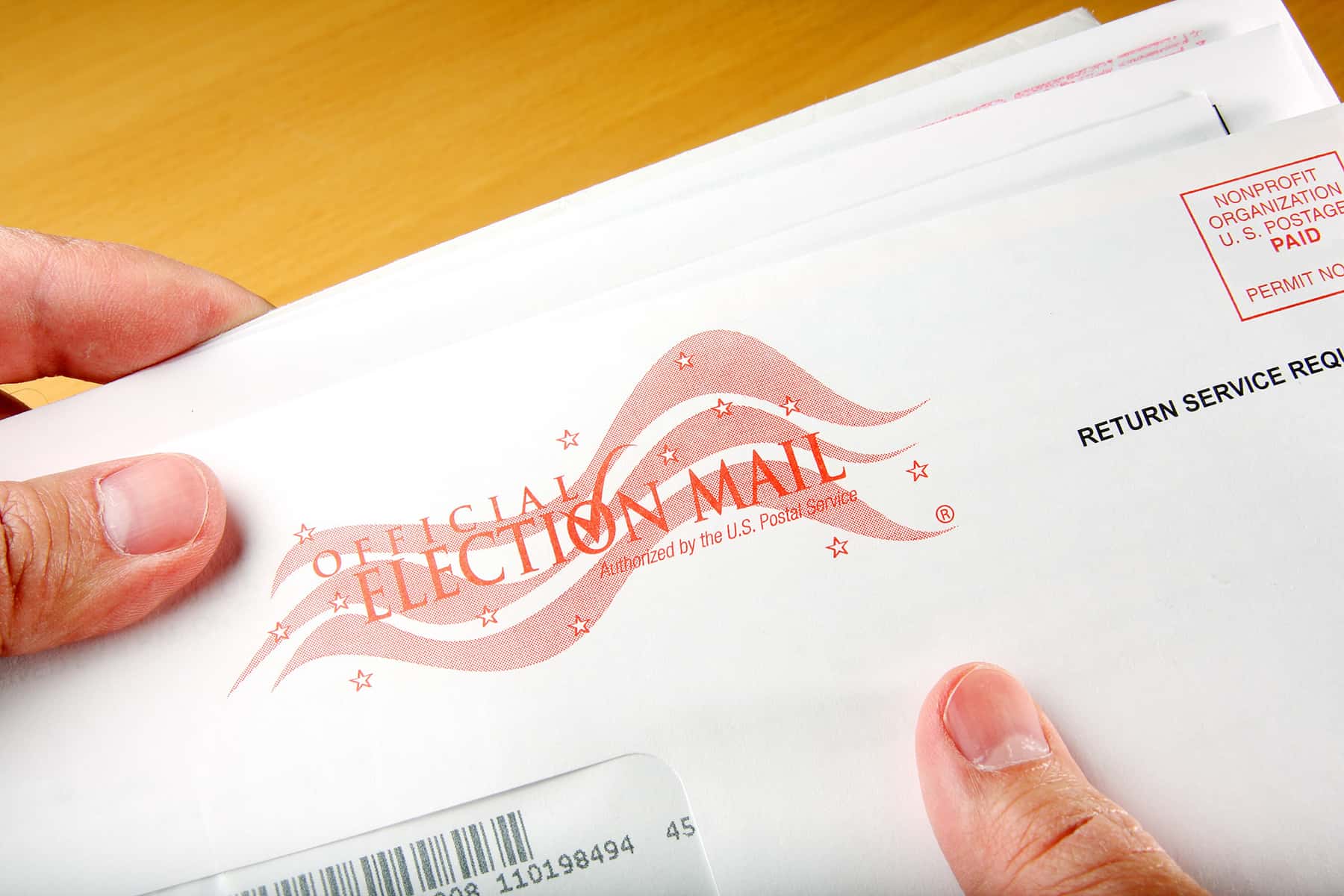
Melody McCurtis is one of three Wisconsin voters who say they were deprived of their right to vote in the chaotic April 7 election, and are now suing the Wisconsin Elections Commission in federal court.
The lawsuit, filed Monday morning in the U.S. District Court for the Western District of Wisconsin by the voters, along with two advocacy groups — Disability Rights Wisconsin and Black Leaders Organizing for Communities (BLOC) in Milwaukee — asks the court to “ensure that all Wisconsin voters will be able to freely and safely participate in the upcoming August and November elections.”
The plaintiffs in the suit are asking the court to make safe, socially distanced in-person voting options available in time for the next round of elections, and to require that absentee ballot request forms be sent to all registered voters in Wisconsin in time to enable them to vote successfully.
McCurtis, a 26-year-old community organizer in Milwaukee, said she requested an absentee ballot on March 22, but never received it. When her ballot had still not arrived by Election Day, she said she had no choice but to go to the polls — “otherwise I wouldn’t be able to vote.”
McCurtis lives with her mother, who is immune-compromised, and her little brother. “So I wasn’t just risking my health. I was risking their health as well,” she said.
After working to promote civic engagement as deputy director and organizer for the Metcalfe Park Community Bridges, and helping voters in her 98% African American community figure out how to cast their ballots, McCurtis felt she could not miss the election.
“My mom was so mad but, you know, I was like, ‘I’ve got to do it.’”
When McCurtis arrived at her polling place, Washington High School, around 6:30 pm, there was a line around the block. “I didn’t cast my ballot until 9:09 that night,” she said. “It was pretty intense.”
The National Guard was patrolling the sidewalk, McCurtis said, and she noticed one officer “going up and saying things to different folks.” One woman left the line after she was approached by the officer, McCurtis said. “And then he came to me and was like, ‘You know it’s gonna be a two-hour wait.’ And I was like, ‘I know it’s gonna be a two-hour wait — the line is wrapped around, and I’ve been waiting.’ He’s like, ‘Yeah, you know, just letting you know it’s gonna be a long time.’”
McCurtis was outraged by what she viewed as the officer’s effort to discourage people from voting. (Long lines developed at all five polling places that remained open in Milwaukee on April 7 — down from the usual 180 — after the Wisconsin Supreme Court overturned Gov. Tony Evers’ effort to postpone in-person voting and local officials scrambled to hold the election in the middle of the COVID-19 pandemic.)
The National Guard officer told McCurtis that he had been on duty since 6 am, she recalls. “I said, ‘A lot of us have tried to vote to avoid coming here, but we’re here.’”
While several other lawsuits have been filed since the April 7 election, Swenson v. Bostelman, the suit McCurtis is part of, is the only one brought by individual voters who describe suffering specific harm. “And they are asking the court to make sure that doesn’t happen to other people,” said Jeffrey Mandell, an attorney for the plaintiffs in the case.
McCurtis’s co-plaintiffs are Jill Swenson and Maria Nelson, neither of whom was able to vote on April 7. Swenson, who suffers from chronic lung disease, lives alone and was not able to get a witness signature on her absentee ballot. Nelson is undergoing breast cancer treatment and never received her absentee ballot, although she requested it on time. “I followed the rules and yet I was still not able to vote,” she said in a statement. “I felt like it was one more thing cancer took away from me.”
The plaintiffs are seeking remedies that can be implemented by the time voters go to the polls again in August and November. Mandell emphasizes that the lawsuit is not seeking changes to election law, such as altering voter ID requirements, as a previous lawsuit sought.
“The court showed a real skepticism about people using COVID-19 as an opportunity to seek relief from parts of voting laws they never liked in the first place,” Mandell said. “This case is about smaller steps within how Wisconsin administers elections, so we can mitigate the effects of the pandemic.”
Asked about the lawsuit in a press briefing on Monday, Evers administration attorney Ryan Nilsestuen agreed that it’s “time to start thinking about the August primary and the November election, and what we can do to make sure that voting is safe and accessible for all.”
“One of the best ways we can do that, just like we saw during the spring election, was to have people be able to vote absentee,” he added. “Clerks under state law can send out an absentee ballot application on their own. There’s funding available that the Wisconsin Election Commission can use in order to cover those expenses.” A sensible option, Nilsestuen said, “is to mail absentee ballot applications to everybody, so there’s time for them to be able to vote safely and securely.”
Mandell notes that the leaders of the Legislature and the Republican Party intervened in previous lawsuits to oppose the postponement of in-person voting and other changes.
“They may play a cynical game where they say, ‘Oh, it’s way too far out to make changes now. No one knows what will be happening in the fall.’ But then if we waited until the Fourth of July to file, they would said, ‘Oh, you’re way too late. Changing the rules now would be unfair and prejudicial.’”
A series of lawsuits in the days immediately before the April 7 election led to rule changes and to voter confusion, Mandell notes.
“That’s not the way the best decisions get made. So bringing this lawsuit now gives time for a full and fair process. Hopefully the court takes it seriously.”
An important aspect of the case, said Mandell and the other attorneys for the plaintiffs, is that it is not partisan. Protect Democracy, a national nonprofit created after the 2016 election and staffed by some lawyers who are veterans of the Obama administration and others who worked for George W. Bush, is providing support in the case.
“We see this as not a partisan issue, but a core democracy issue,” said Rachel Goodman of Protect Democracy. “It’s a real test for democracy in Wisconsin and in the United States as a whole.”
“Wisconsin needs to get this right so the Wisconsin government functions right,” Goodman adds. “But also so that we can have an election in November we can all have faith in.”
The plaintiffs will ask the court for a preliminary injunction within the next two weeks, Goodman said, “to actually start implementing the relief that we’ve asked for, in the short term … before this lawsuit has had a chance to play out all the way — because by the time the lawsuit has played out all the way some of the damage will have already been done.”
“I don’t believe that we were valued on April 7, as somebody who lives in Wisconsin and works in Wisconsin”said McCurtis. “There were so many hoops that were thrown at us in the last week leading up to the election. We might postpone it,’ then, ‘We’re really having it’, ‘You don’t need a signature [for an absentee ballot] — wait, you do need a signature.’”
McCurtis spent the days leading up to the election trying to help voters in her community sort out conflicting instructions. She is worried about what will happen in the next election, she said. “I know some people that just absolutely couldn’t risk it,” so they didn’t vote.
“Nobody should have to go through that,” she added. “It’s our duty to vote, and we should be able to vote. We don’t have to be disenfranchised the way we were.”
Originally published on the Wisconsin Examiner as Wisconsin voters sue Elections Commission to fix voting problems before the fall
Donate: Wisconsin Examiner
Help spread Wisconsin news, relentless reporting, unheard voices, and untold stories. Make a difference with a tax-deductible contribution to the Wisconsin Examiner



